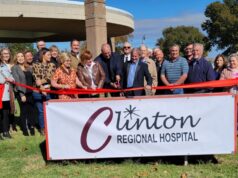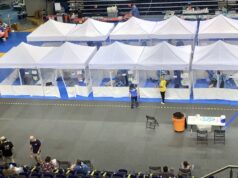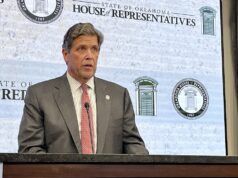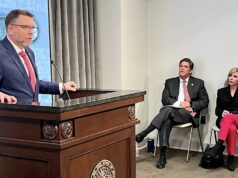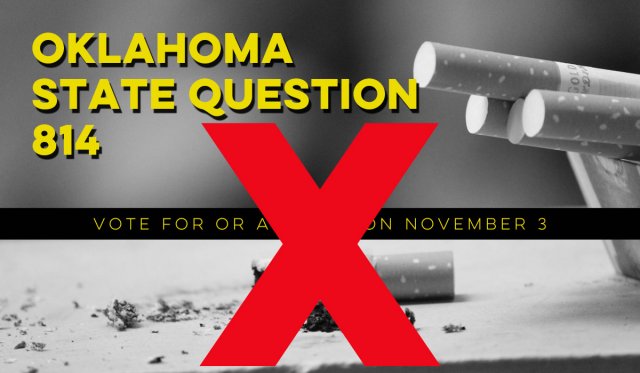
Oklahomans have voted to reject State Question 814, which would have amended the Oklahoma Constitution to redirect annually received funds that currently go to the state’s Tobacco Settlement Endowment Trust. The change would have directed much of the money to be used for Medicaid expansion instead.
With all precincts reporting, almost 58.8 percent of voters had voted against the measure.
TSET is funded by money from the 1998 Master Settlement Agreement, the result of a lawsuit brought by a number of states, including Oklahoma, against the country’s biggest cigarette manufacturers over advertising that targeted children.
As part of the settlement, tobacco companies agreed to make payments to the states in perpetuity. In Fiscal Year 2019, the MSA paid $69.8 million to Oklahoma, according to TSET’s FY19 annual report.
Currently, TSET’s endowment receives 75 percent of the money that comes to the state from the MSA annually, adding to a corpus that currently stands at $1.3 billion. TSET uses the proceeds from the investment of the corpus amount to fund grants aimed at smoking cessation, cancer prevention and other public health programs.
The other 25 percent of the annual MSA money is sent to the Oklahoma Legislature for appropriation, with 6.25 percent of the money going to the Attorney General’s Office to enforce the MSA.
SQ 814 would have switched the allotments, sending 75 percent of the annual payment from the MSA to the Legislature and 25 percent to TSET. The Legislature would have been required to use the funds “to draw down federal matching funds for the Medicaid program.”
In June, voters passed SQ 802, which expanded Medicaid eligibility to all Oklahomans between 18 and 65 who earn up to 133 percent of the federal poverty level, or about $17,000 annually for a single adult.
The federal government provides matching funds to pay for 90 percent of the cost of Medicaid expansion while the state pays for 10 percent. The state’s portion is expected to cost approximately $164 million, according to projections from the Oklahoma Health Care Authority. SQ 814 would have covered about $51 million of that cost.
The Legislature is under a mandate to fund the expansion, so legislative leaders will have to find other sources of funding to cover the cost.
The Oklahoman reported on Monday that relatively little had been spent to campaign on either side of the question, though a No on 814 campaign, supported by a number of public health and anti-smoking organizations, did launch a flurry of ads in the last days before the election. A state agency, TSET itself also ran social media ads promoting its work in the days leading up to the election.
Gov. Kevin Stitt, who in May vetoed a bill that would have raised hospital fees to pay for some of his own proposed version of Medicaid expansion, said in August that he supported SQ 814.












